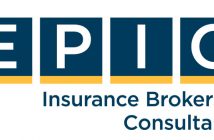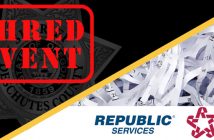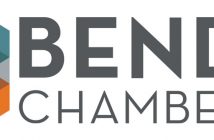How to Start Funding Your Retirement Dreams
It can seem pretty daunting trying to figure out how to save for retirement- there’s a lot of things to learn, you’re dealing with money that you don’t even have yet, there are a lot of questions you may never know the answer to, and isn’t it all a long time from now? When you add in how you’re supposed to save for the future when the present has very real financial needs, saving for retirement seems even more overwhelming.
The time to start saving for retirement is now, if not in the immediate future. If you have not given it much thought, or haven’t felt financially secure enough to start saving, the time to start saving is here. This is true if you’re 20 or 40. Figuring out how much to save and how to go about it truly depends on where you’re currently at, and what kind of life you’d like to have during your retirement.
Is An IRA Account Right For You?
One of the best ways to start saving for retirement is through an individual retirement account, or IRA investing, as it is known.There are essentially two types of IRA’s; traditional IRA and a Roth IRA. Both have their advantages and disadvantages. Contacting a financial counselor can assist you in determining which account best suits your needs.
An IRA permits you to postpone paying taxes until you withdraw the money. This account has the option to invest in almost any stock, bond, or mutual fund you desire, as well as the tax deduction for donations. Being able to invest in the stock market and diversify your IRA allows you to control how quickly you build your wealth.
When you diversify your portfolio with strong steady investments with some riskier investments, you increase your chances of larger returns. If you’re coming to the IRA game a bit later in life, this is a great strategy for you. The money you invest now, as well as the returns on your investments are tax free until you wish to withdraw.This allows you to invest more money now and hold off on paying taxes until retirement.
Traditional IRA contributions often reduce your taxable income for the contribution year. By reducing your adjusted gross income (AGI), you may be able to qualify for additional tax breaks like the student loan interest deduction or the child tax credit that you might not otherwise be able to.
A standard IRA and a Roth IRA are extremely similar. You can still invest in almost any stock, bond, or mutual fund you want, allowing you to cater your investments to your needs. However, the money you invest is taxed, so when you start withdrawing money when you retire, you won’t be taxed. Many investors like this idea, as the money coming in when you’re 70 is not what it is when it comes in at 35.
The most important question is whether your income tax rate will be higher or lower than when you start taking money out of the account. Click here for more information on what determines your income tax bracket. You are compelled to make an informed estimate because it is probably impossible to know for sure. Your present tax rate and whether you believe it will be much higher in the future are important factors to take into account.
When you contribute to a Roth IRA, you are not entitled to a tax deduction. This indicates that it doesn’t reduce your AGI for that year. However, your Roth IRA withdrawals made during retirement are tax-free. That’s because you paid your tax payment in full up front, so you have no outstanding debt.
Who Can Help You Get Started?
The best way to get started is to make an appointment with a financial planner (https://en.wikipedia.org/wiki/Financial_planner) who can talk with you about both your short term and long term financial goals and can help you come up with a strategy to help you achieve those goals. Financial planners take the guesswork out of the process of starting and maintaining an individual retirement account.
Make sure to look up your financial planner or advisor’s credentials. You want to make sure they’re insured, certified, and have great references. Researching their qualifications is important- you are putting them in charge of your financial future. Start your search for assistance at the National Association of Personal Financial Advisors (NAPFA). You may find a planner in your region through the Financial Planning Association (FPA), and you should always work with a fiduciary who will represent your interests.






